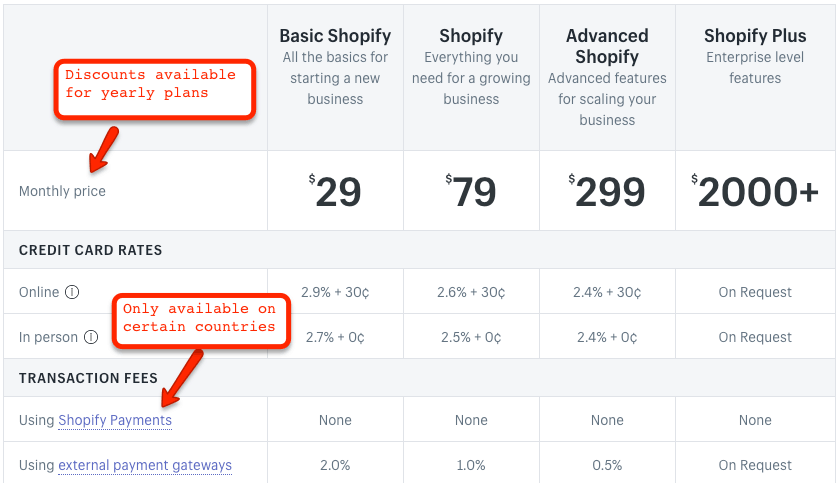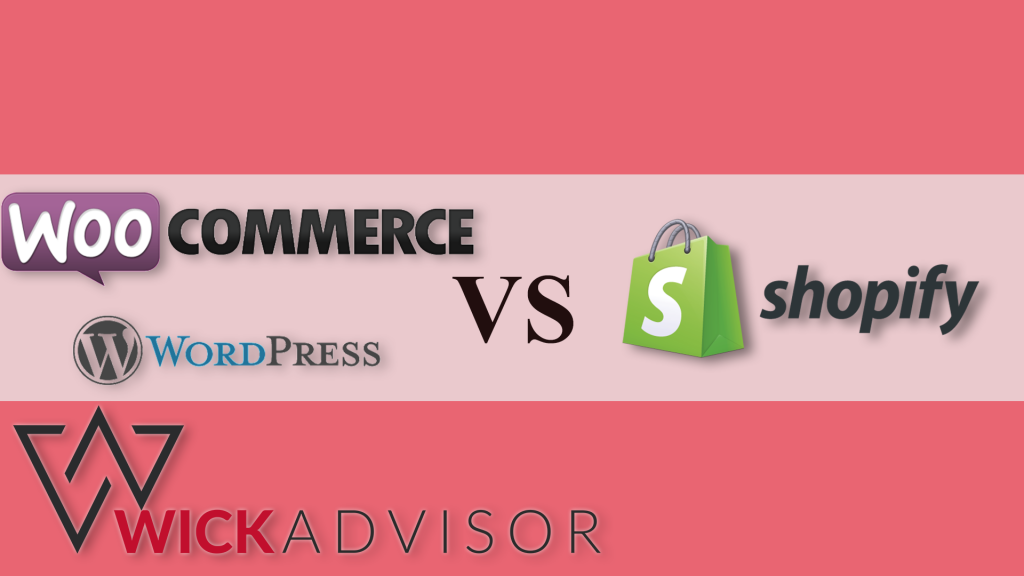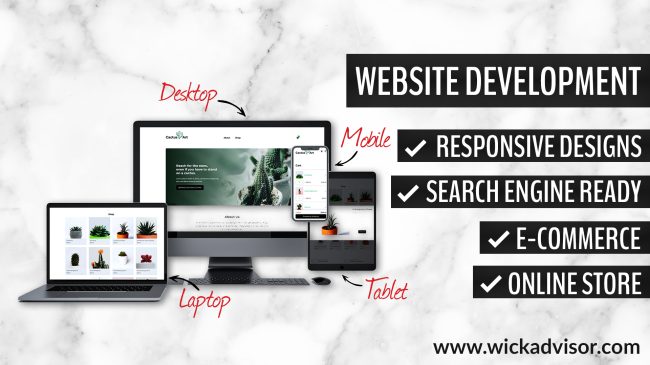Okay. You want to build a website. You are faced with so many options; Shopify, Wix, WordPress, Magento, Opencart. The list goes on. But which is suitable for your business?
All these platforms allow you to build beautiful websites which may eventually lead to your eCommerce success. Though they do achieve similar goals for you, they are all very much different.
As you can probably tell from the title of the article, in this article, I will weigh a website giant, WordPress, against the rest of the eCommerce platforms listed above in terms of pricing, installation, transaction fees, ease of use and scalability. These are some basic information and comparisons you should look out for before investing in a website.
To make sure we don’t turn this article into a fifty page compendium, I will just cover the 2 main options you currently have in your head. WordPress (WooCommerce) or Shopify? Let’s take a closer look at both options and see which one suits your eCommerce needs the best.
WordPress and WooCommerce – What good are they?
Of course WordPress comes to mind as one of your options. At this point, WordPress is more than just a service provider, they have become an almost all-in-one software.
WordPress started out as a blogging site for online users to share free content to the rest of the world and whoever has the URL to your content, can access it. WordPress used to be a user-run community which soon spawned the blogging craze in the late 2000s to early 2010s. That was the start of the website boom. However, that was what WordPress was in the past. It is now 2020, the world has evolved and so has WordPress.
Outside of eCommerce, WordPress is almost always recommended as the best infrastructure to build your website on. After all, they hold the biggest market share for all CMS websites as well as eCommerce stores in the world right now. Now, WordPress comes as a full package, from blogs, to online schools and even eCommerce stores are possible with the right person steering the wheel.
Just to put it out there, unlike the other competitors listed above, WordPress is more than just a website creation tool, it is a whole Content Management System (CMS) on its own. A CMS gives the user the ability to build a multipurpose website. A website where you can run a blog, a portfolio display, a company profile, host a community of users, teach lessons, as well as an eCommerce store, all with just one website. That is the power of WordPress.
WooCommerce
You’ve heard of WordPress, now, what is WooCommerce? You might wonder. WooCommerce is a popular eCommerce plugin for WordPress sites. Like I mentioned above, fundamentally, WordPress isn’t an eCommerce platform. WooCommerce turns your static WordPress site into a full-fledged online store with the ability to upload products to your website and take payments online. WooCommerce is among the tens of thousands of plugins that reside in WordPress’s ecosystem.
“It is just a plugin, how can WooCommerce be any good?!”. Well, did you know that 31% of all online stores are run on WooCommerce (compared to Shopify’s 8%)? We’ll let the numbers talk.
What about Shopify?
With Shopify, there’s not much to talk about. Let me just throw some facts up on here.
- Shopify is an eCommerce tool that allows you to build an online store without much design or coding knowledge.
- It allows you to sell anything online, from goods, products, to even services. Digital or not. It even has a plugin to allow you to dropship (WooCommerce allows this too).
- It is an online store builder, no more, no less. No blogs and corporate pages. The main intent of using Shopify is to sell things.
- It is a paid tool ranging anywhere between $30 to $300 a month to even more than that. To integrate an extra function, button or even a countdown timer will cost you monthly fees. These fees typically add up to a huge amount when unsupervised.
- Hundreds free and paid online store designs to choose from.
To summarise, Shopify is a DIY tool that is almost idiot-proof with instructions and guidance. If you have plenty of time on your hands and a curious mind, Shopify is your go-to. However, the website you wish to build with Shopify is limited to what Shopify allows. In other words, the possibilities are not as wide. You don’t get to customise and scale your business. However, if your sole intention is to start an eCommerce store to sell a particular range of products with no intention to go beyond that, Shopify should do the trick. And it does it well.
So why not Shopify?

One thing you do have to note is that transaction fees exist, with Shopify. The fees probably wouldn’t affect your sales much if you sell higher priced products but it is still worth noting as the number really adds up after some time. On top of that, there is also an additional 2% per transaction if you do not use the Shopify Payments gateway which is only available in certain countries.
Also, some known issues with Shopify are:
- Most, if not all key functionalities that you expect to come with Shopify right out of the box, are usually paid functions that you have add-on on a per plugin basis (think paid apps on the Apple app store). Depending on the number of plugins you decide to integrate onto your site, this cost can really plant a black hole in your pockets.
- The professional reports (usually the only reports that are useful) are only available on higher priced plans.
- Adding text boxes or image uploads are unnecessarily complicated. The fact that you’re on Shopify probably means that you are not too savvy with web stuff but hey, guess what? There are options which involve purchasing a plugin to do it for you.
With all that said, I still recommend Shopify if you don’t already have a website or if you want to set up your online store and start selling fast because Shopify does provide some solid guidance and support for their users as opposed to WordPress’s support which is considered a strobe of good luck if you are able to even get through to them.
When should you use Shopify?
Of course eCommerce platforms like Shopify have their perks and advantages. If any of the below fits your current situation, Shopify might be a good fit for your business.
- You do not already have a WordPress website.
- Your sole purpose of the website is for eCommerce alone.
- You are operating alone or in a small team.
- Your business is eligible for Shopify Payments and not under their list of Prohibited Businesses.
- You do not mind the cost of building with Shopify and their plugins.
- No intentions to scale your business beyond an eCommerce store.
- You need to have your online store set up fast.
To put it simply, using Shopify is similar to buying a piece of furniture from IKEA with a nice set of DIY instructions to guide you whereas WordPress is more akin to buying pieces of planks and screws, then building the furniture from scratch. Some people are able to build a whole house with raw pieces of wood. Some can only build benches. The ball is in your court to make the shot.
Verdict – WordPress or Shopify?
If it isn’t obvious enough, we’re all for WordPress. But before you jump right into it, let me share with you some things you should know.
- With WordPress, although it is free, it is not a plug and play solution. You will need a domain name which you can buy through a web host for under $10 a month.
- You might need to buy a paid theme (there are free themes as well) and install some plugins to optimize your site. If you are not web savvy, you might find this difficult.
- You might have to spend some hours learning how to manage a WordPress site. Or you could consider engaging WordPress experts or a web design company to manage it for you.
- You probably have to experiment with coding from time to time.
Sure, WordPress is a complicated thing to deal with. However, its charm comes with the fact that it is the perfect solution for existing businesses and for businesses with the intention to scale to greater heights. We know that most businesses do not have the resources to hire a full-time, or even part-time developer to manage your website. That is where we come in. At WickAdvisor, we cover all the pain points business owners face when it comes to website design, development and even eCommerce.
WickAdvisor and WordPress
If you have decided that WordPress is the option for your business, do consider giving us a shot to help you build your website and scale your business. Unlike many web design firms, our core services stem from Business Advisory so, you don’t have to worry about nightmare experiences where the designers take their hands off as soon as the website is completed. We value long-term business friendships and partnerships which is why we offer all of our clients a 3 months membership to WickAdvisor where we will assist you with any business or technical troubles you face with your website. If you are a new startup business owner, do check out our article on the 5 Reasons why Startups Fail.








